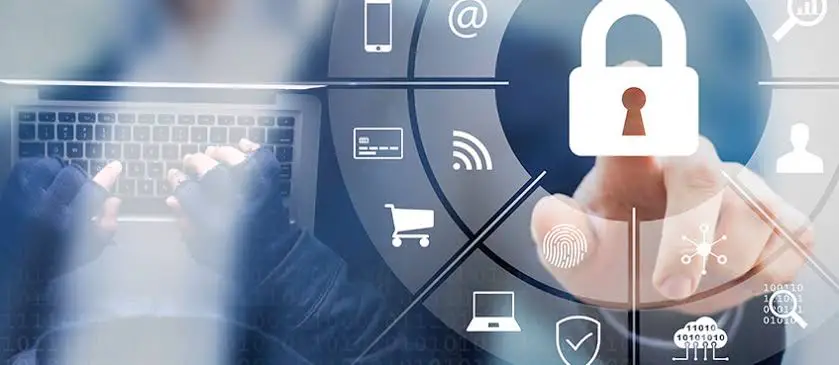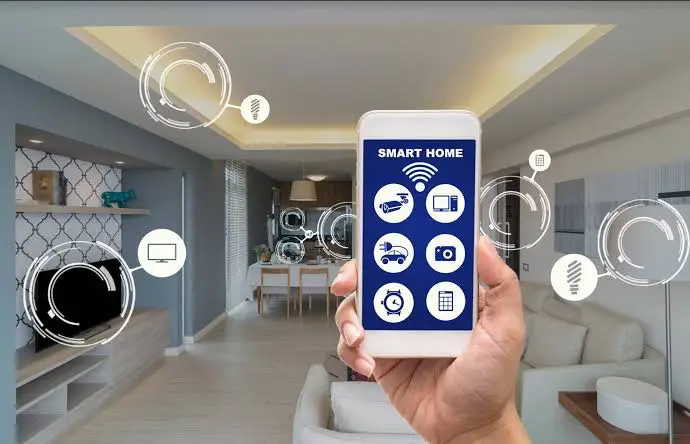One of the most popular technological topics these days is innovative home technology. The internet of things is growing exponentially with the emergence of smart appliances, smart home gadgets, and other intelligent devices. Smart home appliances like smart thermostats, Alexa, and digital security cameras are revolutionizing how we live in and think about our houses while simplifying and automating our daily routines.
However, the smart home exposes users to various concerns, including privacy and security breaches and hacking. Like any quickly expanding industry, the smart home sector faces several difficulties, notably device security. A successful smart home must prioritize the security systems for rental properties.
This article discusses the five most significant security risks in your smart home and offers tips to protect your smart home systems from hackers.
5 Biggest Security Risks in your Smart Home
1. Identify Theft
Cybercriminals may target a smart device manufacturer. If successful, hackers might access the personal data of every person using a smart device for business. From here, they can steal your identity using this information.
You can share just a few personal details while configuring a smart device. As a result, you can reduce the chance that hackers may gain access to and exploit your details for malicious purposes if the firm that provides the device is compromised.
If a smart device company alerts you to a data breach, respond to the situation as directed by the company. For example, following a data breach, a business frequently provides free credit monitoring services. In addition, landlords can hire a responsible property management team that considers a tenant’s security a priority.
2. Home Invasion
You may live safely with the aid of smart house locks, security cameras, and other tools. On the other hand, these security measures are vulnerable to cyberattacks. Hackers can deactivate these devices if they gain access. Then, cybercriminals can break into your home on their own or with the help of accomplices. They might be capable of keeping you out of your house as well.
In addition to intelligent security gadgets, installing a security alarm and door bracing is beneficial. This ensures that even if your smart home security systems are compromised, you can always protect your home from invasions. First, however, you can read up on ways to turn your house into a smart home to acquaint yourself with the best devices to secure your property.
3. Location Trailing
Smart home devices protect your personal information. However, there may be circumstances in which a smart device makes accessing your home simple. As a result, cybercriminals can spy on you and discover your location or what you’re up to in these situations.
The location of your home is automatically determined by a tracking system using the Global Positioning System (GPS), which is connected to smart home gadgets. The GPS gathers position data that is supposed to be secret, but because it is stored in the cloud, it is vulnerable to hackers. Sadly, anyone who goes out of their way to locate your residence might be up to no good.
You can make sure to put your smart home devices on a different network to prevent location tracking. Your home address can be hidden from hackers through a separate network. Whether you have a large family or live alone, you can connect all your smart home gadgets to the network.
4. Third-Party Issues
The emergence of third-party cloud storage played a significant role in developing the smart home feature that permits remote access and monitoring. This enables information from your smart home to be accessed from anywhere. For example, many smart devices allow homeowners to remotely turn on and off lighting or open and lock garage doors through smart-home platforms. However, if someone gets their hands on your phone and uses an app without secure authorization, they might pretend to be you and use your gadgets.
Additionally, some apps combine permissions to operate on the device rather than requesting individual permissions for each task. A hacker might then be able to lock and open your front door remotely. When in doubt, only utilize approved platforms and apps to manage your smart devices.
5. Outdated Apps
Cybercriminals may find it even simpler to use your smart devices for malicious purposes if you run old, threat-prone software. The best method to safeguard your gadgets is to purchase them from trustworthy companies that prioritize security and then set them up to update when new software becomes available automatically. By doing this, you’ll have access to the most recent security updates, which fix known security vulnerabilities, reduce the danger of viruses, and maintain the smooth operation and security of your smart home.
3 Tips to Protect Smart Home System From Hackers

-
Safeguard your Wi-Fi Network
Many routers come with default passwords, typically plastered on the bottom or side to make them accessible during setup. The bare minimum action you can do to secure your network is to always replace these default passwords with new ones that are hard for anyone to guess. By doing this, you can be sure that hackers won’t crack your password.
2. Use Distinctive Passwords for Your Devices
Having a unique network password might not be sufficient to protect your devices. Instead, consider assigning unique passwords for each of your exclusive devices to that product. At the very least, refresh these.
3. Always keep your smart home apps up to date
Install the most recent security patches for smart home devices. For the majority of smart home devices, you can configure automatic security updates for most smart home devices. Additionally, you can register for email or text alerts from the brands of smart home devices to get regular notices regarding software upgrades.
Conclusion
The Internet of Things (IoT) market is expanding exponentially, which has increased interest in the smart home industry. The prevalence of connected devices is rising, and this development is creating numerous security challenges. Both landlords and tenants may be more likely to have their identities stolen and to have their homes broken into. It’s critical to check that smart home appliances are routinely updated and have the most recent security updates to minimize these dangers.


